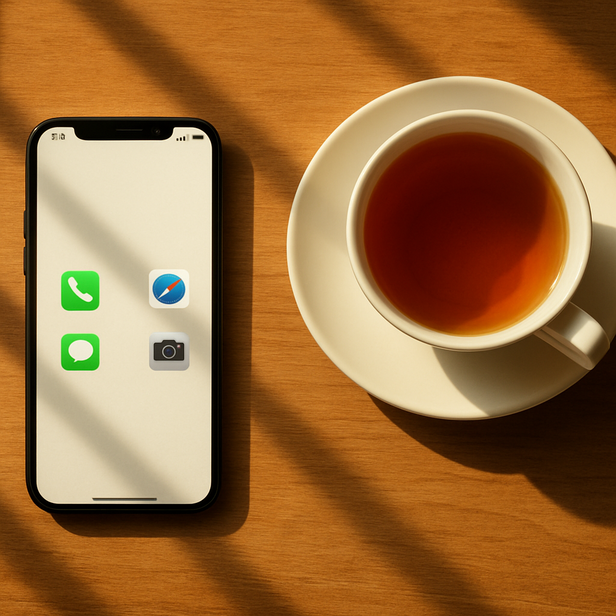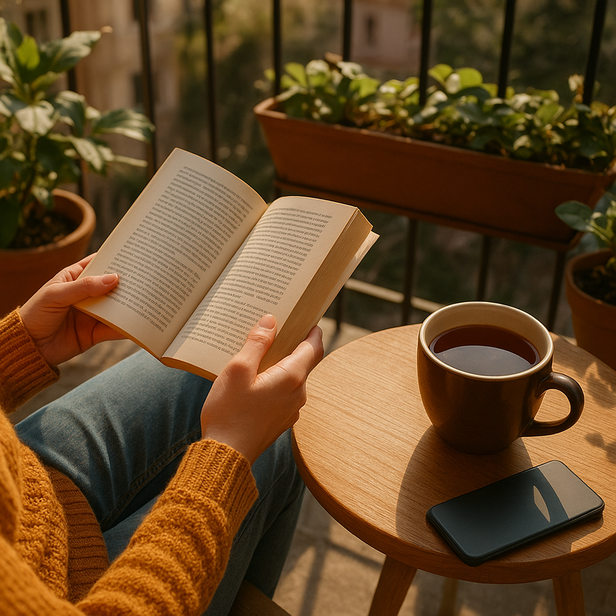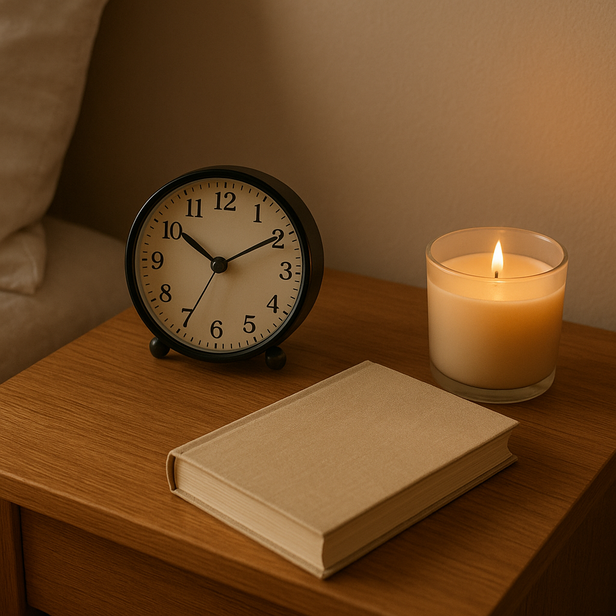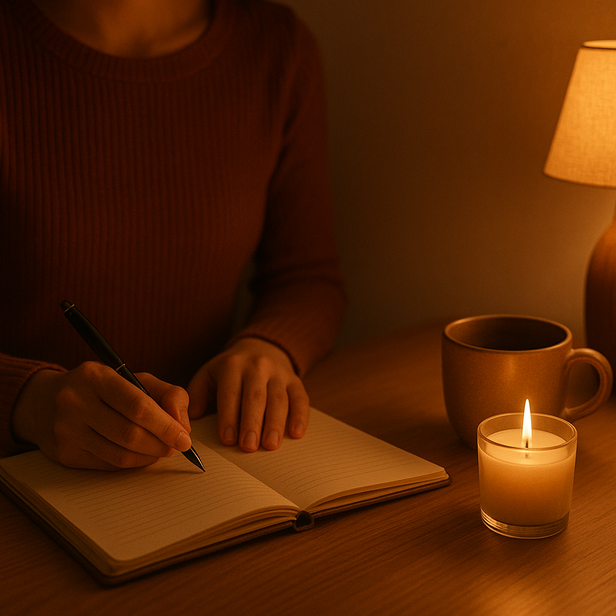Digital Declutter: The Weekend Detox You Didn’t Know You Needed
Charu Sharma | Oct 22, 2025, 12:25 IST
This article digs into the mighty force a weekend digital detox can be in our daily lives filled with never-ending notifications and an infinite scroll of content. By walking through the process of decluttering apps, drawing limits, and engaging with one's surroundings, it reveals the incredible impact of a mere two-day disconnection on one's concentration, relaxation, and getting a real breath of fresh air.
There is a bizarre feeling of tiredness which is not caused by physical or emotional chaos but is caused from being in touch with people all the time. You get your phone “just for a second” and before you realize it, you have gone through the pictures of 200 people, the opinions of 50, and the 10 versions of what your weekend should be like. The effect? You feel that you are overstimulated but at the same time, lacking something. It’s very difficult to not be online in today’s world where our phones have nearly become part of our bodies. Not being online is almost a radical move. But maybe what we really need is not a productivity hack but a break. Taking a break from the digital world during the weekend is not about getting rid of the devices forever; it's about regaining your focus gradually with each notification turned off.
1. Start with a ‘Digital Spring Cleaning’

Before unplugging, it is necessary to go through the process of uncluttering. The same way you are not able to relax in a messy room, your mind also won’t be able to find rest if it is accompanied by a chaotic digital space. Start with the mobile phone - uninstall apps that consume more of your time and energy than they add value to you. In short, get rid of those apps that make you shop on impulse, play random games, and follow accounts that make you feel worse through comparison. Take all the work-related tools and put them in a separate folder, then only keep the necessary ones on your home screen. And then, face your inbox. Get rid of the subscription to newsletters that you never read, clean out the downloads folder, and move to the archive the conversations you no longer want to use. The goal here is to eliminate digital noise which means that our attention will feel less heavy. This step is sufficient to give one an immediate respite - it is not only about less time in front of the screen but also about fewer mental tabs.
2. Replace Screens with Senses

Detoxing over the weekend can be very trying especially with the void left by your gadgets. Phone is our emotional comfort kit - we grab it when we are bored, anxious or lonely. So, you’ll need something that fills that sensory gap when you turn off your switch.
See the following:
3. Set Boundaries Without Guilt

Being "reachable" is what we often assume to mean "responsible," but the fact is, your boundaries are what keep your peace. Start the detox by letting people know - inform close friends or family that you will be offline for the weekend. This tiny act releases you from the guilt of not responding instantly if you do not have a total disconnection. If cutting off entirely is out of the question, take partial boundaries: Put your phone on "Do Not Disturb" and only check messages at certain times - for example, 11 a.m. and 6 p.m. Don't use your phone as an alarm clock - it forces you to get online first thing in the morning. Use a real clock instead. Get your charger off your bedside table. If your phone is in another room, you get better sleep too. Limiting what you do is not a sign of weakness - it is a sign of self-respect. And on Monday you will feel a very amazing thing: your mind will be calmer, lighter, and more yours.
4. Reflect, Don’t Replace

The most famous digital detox trap is one which changes one display with another. A person usually deletes social media but watches a series to the extreme instead. One stops scrolling and yet spends hours on Pinterest. It is not a detox but displacement. Instead of a screen, you can use the time outside to think: How was your body when you were not checking notifications? What came to your mind when there was no distraction? Did you feel restless or peaceful - and what does that say about your inner self? On Sunday evening, try to write down your thoughts. Write about the things you missed and the ones you didn’t. You might discover that half of the things you do online to simply bring you joy - just a habit. You will also find out how you are more present in the small moments - conversations become more intense, food more tasty, silence less frightening. This is what a real detox does: it not only removes but also reconnects.
Final note :
A digital detox is not a complete withdrawal from technology but a way to get back to your center. Your smartphone is not the enemy; your nonstop flow of engaging content is. When you walk away, you realize that the world has its slower tempos - the tempo of chuckles over tea, the tempo of breeze passing through the windows, the tempo of ideas becoming quite. After your weekend detox, you will probably go back online but with a different approach. You will browse at a slower pace, take a longer break, and be less affected by the feed’s turmoil. Because if you ever get a glimpse of calm, you will find that your constant uproar is intolerable. Therefore, this weekend, give it a shot. Power down. Exit the scene. Discover the sound of your mind when it is at last silent.
FAQs (Frequently Asked Questions) :
1. Start with a ‘Digital Spring Cleaning’

Minimal apps and cup of tea
( Image credit : Times Life Bureau )
Before unplugging, it is necessary to go through the process of uncluttering. The same way you are not able to relax in a messy room, your mind also won’t be able to find rest if it is accompanied by a chaotic digital space. Start with the mobile phone - uninstall apps that consume more of your time and energy than they add value to you. In short, get rid of those apps that make you shop on impulse, play random games, and follow accounts that make you feel worse through comparison. Take all the work-related tools and put them in a separate folder, then only keep the necessary ones on your home screen. And then, face your inbox. Get rid of the subscription to newsletters that you never read, clean out the downloads folder, and move to the archive the conversations you no longer want to use. The goal here is to eliminate digital noise which means that our attention will feel less heavy. This step is sufficient to give one an immediate respite - it is not only about less time in front of the screen but also about fewer mental tabs.
2. Replace Screens with Senses

Person reading a book
( Image credit : Times Life Bureau )
Detoxing over the weekend can be very trying especially with the void left by your gadgets. Phone is our emotional comfort kit - we grab it when we are bored, anxious or lonely. So, you’ll need something that fills that sensory gap when you turn off your switch.
See the following:
- Utilize your hands. Prepare a full meal, draw, replant a pot, or even tidy up your wardrobe. Moving your body can help you to reconnect with your senses.
- Utilize your body. Take a walk without listening to music or podcasts. Hear the city’s hum, the birds, and your own footsteps. It is very grounding which you might not have thought.
- Utilize your brain. Get a book you have delayed reading for months and start writing - not on Notes but on paper. Handwriting can be a slow, calming, and meditative-like process to some people
3. Set Boundaries Without Guilt

Calming products
( Image credit : Times Life Bureau )
Being "reachable" is what we often assume to mean "responsible," but the fact is, your boundaries are what keep your peace. Start the detox by letting people know - inform close friends or family that you will be offline for the weekend. This tiny act releases you from the guilt of not responding instantly if you do not have a total disconnection. If cutting off entirely is out of the question, take partial boundaries: Put your phone on "Do Not Disturb" and only check messages at certain times - for example, 11 a.m. and 6 p.m. Don't use your phone as an alarm clock - it forces you to get online first thing in the morning. Use a real clock instead. Get your charger off your bedside table. If your phone is in another room, you get better sleep too. Limiting what you do is not a sign of weakness - it is a sign of self-respect. And on Monday you will feel a very amazing thing: your mind will be calmer, lighter, and more yours.
4. Reflect, Don’t Replace

A person journaling
( Image credit : Times Life Bureau )
The most famous digital detox trap is one which changes one display with another. A person usually deletes social media but watches a series to the extreme instead. One stops scrolling and yet spends hours on Pinterest. It is not a detox but displacement. Instead of a screen, you can use the time outside to think: How was your body when you were not checking notifications? What came to your mind when there was no distraction? Did you feel restless or peaceful - and what does that say about your inner self? On Sunday evening, try to write down your thoughts. Write about the things you missed and the ones you didn’t. You might discover that half of the things you do online to simply bring you joy - just a habit. You will also find out how you are more present in the small moments - conversations become more intense, food more tasty, silence less frightening. This is what a real detox does: it not only removes but also reconnects.
Final note :
FAQs (Frequently Asked Questions) :
- Can I do a partial digital detox?
Yes! Limiting certain apps or screen hours still helps. The goal is mindfulness, not total disconnection. - How often should I do digital detox?
Try a weekend detox once every month to maintain a balanced digital lifestyle. - How long should a digital detox last?
Even a two-day break, like over the weekend, can significantly refresh your mind and restore focus.
